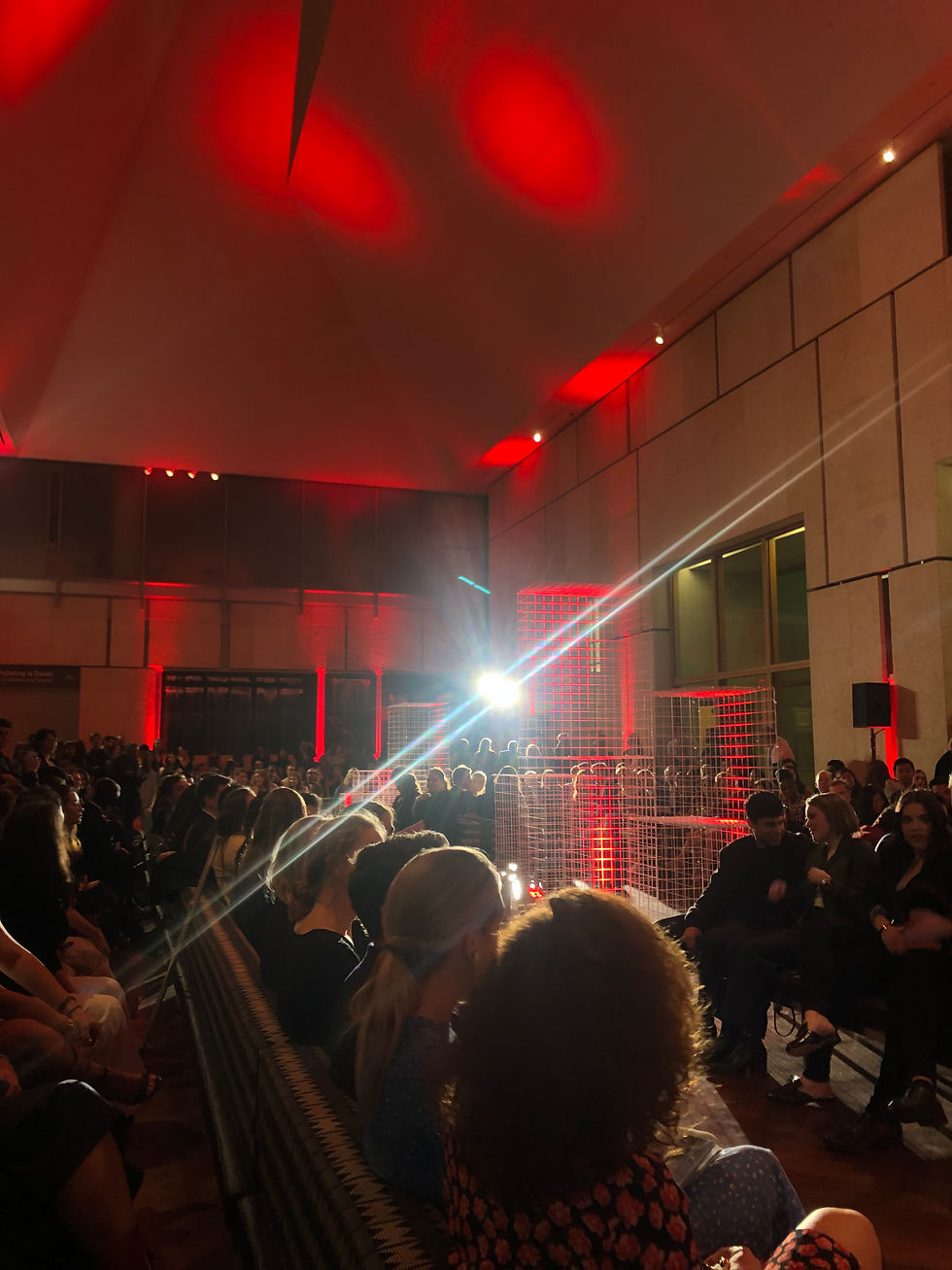Marjane Satrapi at Penn
- VP Public Affairs
- Mar 14, 2019
- 3 min read
Updated: Mar 18, 2019
On one of the first warm, and bright, days of the 2019 Spring Semester, UPenn welcomed author and director Marjane Satrapi to be a guest at the Levin Family Dean’s Forum. The annual event was held in honor of significant contributions and excellent work done by both Graduate and Undergraduate Students at the University of Pennsylvania. Dean’s scholars arrived with family and friends to listen to Satrapi and later attend a reception at the Annenberg Center. The theatre where the event took place was entirely full as Satrapi entered into a thought-provoking and enlightening conversation with Penn’s own Fatemeh Shams, Assistant Professor of Near Eastern Languages and Civilizations. Many of us have had the chance to read the comic book Persepolis (2000)written by Marjane Satrapi, or even watched the film adaptation of the work directed by Satrapi herself and of the name title. However, while the author is largely known for Persepolis, which has been translated in over 40 languages and has won numerous awards, she has continued her work as above all an artist.
In the years since publishing Persepolis, Satrapi has also published Embroideries (2003), a story about the women in Satrapi’s life set in the context of an afternoon’s conversation over tea, as well as having published Chicken With Plums (2011), which touches on subjects like mental illness and ill-fated romance while inciting a political reading. The latter work was also adapted into a film. During her conversation with Professor Shams, Satrapi touched on how working between mediums for works like Persepolis and Chicken with Plums impacted her, stating that while drawing and writing her books are a more individual endeavor which relies on her memories, making a film is a necessarily collaborative project. Having decided to make the films entirely in France given her worry that Hollywood’s approach might have flattened the stories, Satrapi noted that with the realization that making the films in the way she wanted to would be a reality, she also realized that cinema has the most potential to inspire empathy in its audience.
Photos by Penn Arts & Sciences (@pennsas).
In response to Professor Shams’ question regarding how Satrapi’s works have unapologetically broached mental illness, Satrapi said that her hope, if not her goal, was that works such as Chicken with Plums, Persepolis, and her 2014 film The Voices starring Ryan Reynolds and Anna Kendrick, would help destigmatize depression and mental illness. She said that, as humans and therefore as conscious beings, we struggle constantly with what she called the “conscience of death”—death as a concept and a reality is difficult to deal with, so why wouldn’t it create some sort of mental upset? Confronting the pain in life is important because, as Satrapi said, “we need to feel the pain in order to feel and to be happy.” Satrapi and Shams also discussed the history of international political tension between the United States and the Middle East as a Region, and Iran specifically. Importantly, Satrapi directly addressed, mincing zero words, the militaristic violence the US has enacted on the region in the past 40 years and increasing after the terrorist attack on 9/11. She mentioned having often wondered how many lives of a Middle Easterner is worth one life of “a Westerner,” explaining that the violence that has taken place is outside politics and has more to do with devaluation of human life.
After the end of Shams’ and Satrapi’s conversation, the floor opened to questions from the audience. Members of the wider Pennsylvania and South New Jersey came to speak to someone who, in their own words, either changed their lives or deeply inspired them to find strength in themselves and their own backgrounds. Individuals of all ages, from juniors in High School, to college students from Drexel, Temple, and Penn, and aspiring artists to a Veteran stood to ask for Satrapi’s opinion, thoughts, and even advice. It was, on all counts, an unforgettable and enriching afternoon











Comments